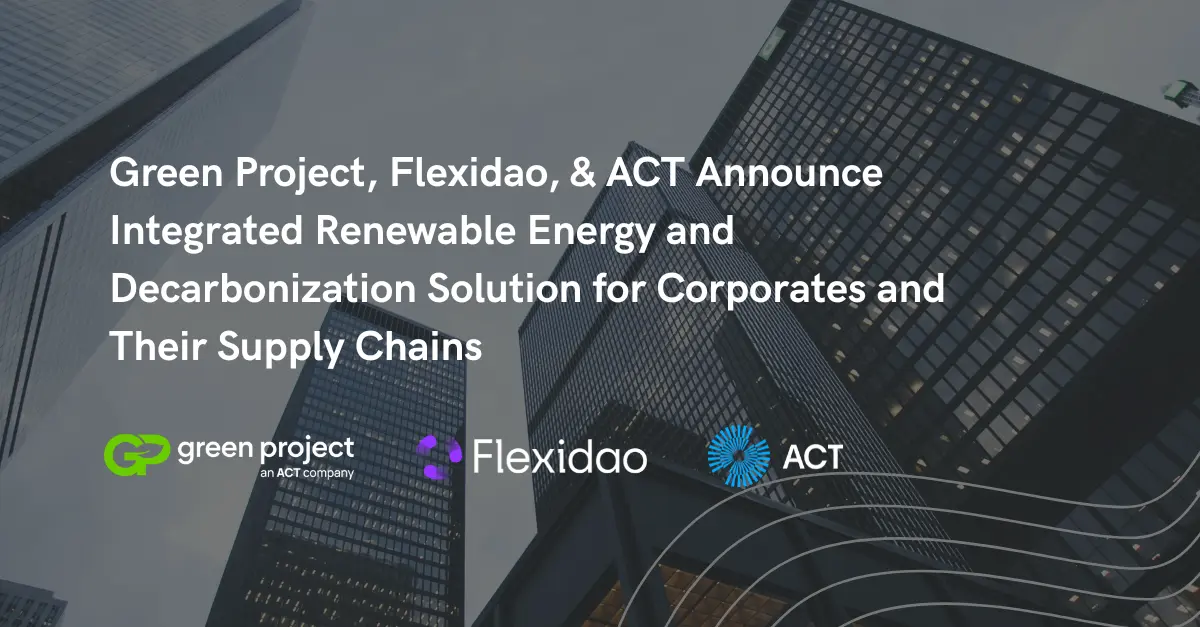RE100 Technical Criteria Update: Everything you Need to Know
RE100 Technical Criteria Update: Everything you Need to Know
Learn how the RE100 technical criteria update can impact your business, especially on the renewable energy reporting front.
RE100 (Renewable 100) is a global initiative that brings together some of the world’s largest companies with a commitment to 100% renewable electricity. Launched by The Climate Group in partnership with CDP (Carbon Disclosure Project), this renewable energy initiative aims to accelerate the shift towards zero-carbon grids at scale.
To support its mission, RE100 regularly reviews and updates its technical criteria every two years. As part of this process, two new rules will take effect for reporting on the year 2024.
What are the new RE100 Rules?
Starting in 2025, RE100 will introduce two new mandatory reporting requirements, adding complexity to energy teams’ data management responsibilities:
- Age of Renewable Assets
RE100 will only recognize renewable electricity purchases from assets commissioned or repowered within the past 15 years. This change is designed to incentivize the development of new renewable energy projects and drive the energy transition. Businesses unable to meet this requirement, or whose renewable assets exceed the 15-year threshold, will only be able to claim 15% of their electricity purchases from those assets as 100% renewable.
- Redefined Single Market in Europe
To enhance the integrity of renewable electricity claims in Europe, RE100 has redefined the region's single market. Only countries meeting all three of the following criteria will qualify:- Membership in the Association of Issuing Bodies (AIB)
- Issuance of European Energy Certificate System (EECS) Guarantees of Origin
- Grid connection to another country meeting these criteria
As a result, some countries currently included under the single market definition, such as the UK and Malta, will be excluded from this year.
How can businesses stay compliant?
Navigating the evolving RE100 technical criteria can be challenging. Businesses must accurately track renewable energy production and consumption data, their total EAC portfolio, and now additional details such as the commissioning dates of renewable assets.
For many, reliance on manual data collection and spreadsheets makes this process labor-intensive and error-prone. These methods limit oversight, making it difficult to identify discrepancies and ensure compliance. Digital tools offer an effective solution by automating and streamlining the data management process.
How can Flexidao help?
Our platform offers a number of different dashboards and features which help with reporting on renewable energy supply to disclosure schemes like RE100. It simplifies the process by automating the classification of transactions and providing clear visibility into how each transaction contributes to your RE100 reporting. This ensures accuracy, saves time, and enables you to focus on achieving your sustainability goals with confidence.
Our EAC Data Overview seamlessly integrates with various registries, enabling users to view and download all EAC transactions and attestations in one place.
Our Contract Tracking Dashboard tracks EACs received against expected volumes, highlighting discrepancies. This global overview allows energy buyers to address shortages proactively and avoid price hikes during peak reporting periods.
Our Reporting Dashboard has a number of key features which can help businesses to ensure they are optimizing their RE100 results as much as possible.
- Gather proof for your claims with efficiency and accuracy
This dashboard automates the extraction of critical information, such as the commissioning dates of assets and the origin markets of EACs, saving your team time and resources. Supporting documentation, such as supplier contracts or purchase proofs, can also be attached to the dashboard, ensuring all claims are fully substantiated and audit-ready.
- Gain insights and automate score calculations
The dashboard provides automated insights which give actionable recommendations for optimizing EAC allocations, ensuring compliance with RE100 criteria and maximizing results. The platform also calculates expected scores based on technical criteria, providing businesses with clarity and confidence before submission.
- Optimization of EACs and attestations for the best possible claims
The dashboard can also automatically reduce market-based emissions by optimizing EAC usage and attestations in line with RE100 requirements. This feature helps businesses achieve emissions reduction goals effectively.
- Export the data you need
Tailored to meet RE100 requirements, the dashboard automates the generation of precise answers for electricity-related questions on CDP reports. This functionality, coupled with the ability to attach supporting documentation, streamlines the reporting process and saves valuable time.
Speak with our experts today to explore ways in which Flexidao can help you navigate RE100 policy developments and optimize RE100/CDP reporting.


.webp)





